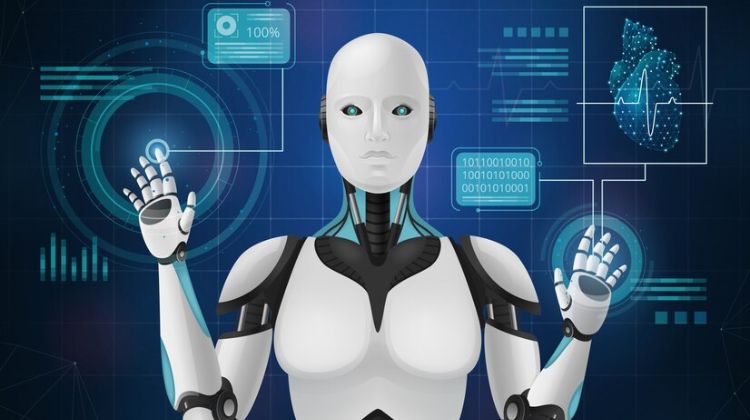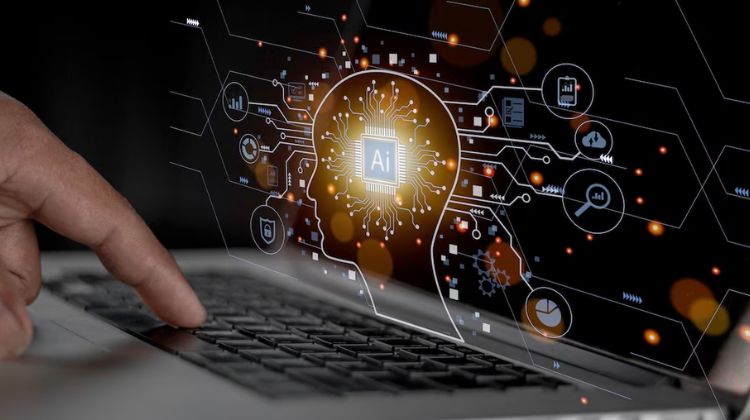
10 minute read
Is Reinforcement Learning With AI Good For Humans?
For Quick Enquiry: Click Here
Introduction: The Impact of Reinforcement Learning on Human Society
Reinforcement learning is one of the most fascinating areas within artificial intelligence. It's a type of machine learning where AI models learn to make decisions by interacting with their environment and receiving feedback in the form of rewards or punishments. But the big question remains: Is reinforcement learning with AI good for humans? In today's world, where technology continues to advance at an unprecedented pace, understanding the implications of these developments is crucial. In India, as more people seek to understand and work with AI, An Artificial Intelligence Training Institute in Noida is popping up everywhere, offering courses that help individuals navigate this complex field.
But before we get swept away by the promise of AI and its potential to revolutionize industries, it's important to take a step back and consider the broader impact. Will reinforcement learning create more opportunities for humans, or will it make certain jobs obsolete? Will it enhance our daily lives, or will it introduce new challenges and ethical concerns? These are the kinds of questions we need to ask ourselves as we dive into this topic.
In this blog, we'll explore the potential benefits and risks of reinforcement learning with AI and how it can affect humans. By looking at real-world applications, ethical considerations, and future possibilities, we'll try to answer the question of whether reinforcement learning is truly good for humanity. And don’t worry—we’ll sprinkle in a bit of humor along the way to keep things interesting. After all, discussing AI doesn’t have to be all serious and gloomy!
Exploring the Positive Impacts of Reinforcement Learning on Human Life
1. How Reinforcement Learning Enhances Efficiency in Various Industries
One of the most significant advantages of reinforcement learning is its ability to optimize processes and enhance efficiency across various industries. From healthcare to manufacturing, AI-powered systems can learn to perform tasks more accurately and quickly than humans. For example, in healthcare, reinforcement learning algorithms can help doctors make better decisions by analyzing vast amounts of data and suggesting the best treatment options. This can lead to better patient outcomes and more efficient use of resources.
In the manufacturing sector, reinforcement learning can be used to optimize production processes, reduce waste, and improve overall efficiency. By continuously learning from the environment and adjusting strategies accordingly, AI systems can identify patterns that humans might miss. This not only saves time and money but also leads to higher-quality products. In India, where industries are constantly evolving and competition is fierce, these improvements can make a significant difference.
However, it's essential to remember that while AI can enhance efficiency, it doesn't replace the need for human oversight. Even the most advanced reinforcement learning models require human intervention to ensure that they are functioning correctly and making ethical decisions. This is where AI Courses Online in Noida come into play, providing individuals with the skills they need to work alongside AI and harness its potential effectively.
2. Opportunities for Innovation and Creativity in the AI-Driven World
Another exciting aspect of reinforcement learning is its potential to unlock new opportunities for innovation and creativity. By automating routine tasks and optimizing processes, AI frees up human time and energy for more creative endeavors. For example, in the entertainment industry, AI-powered systems can assist in creating personalized content that resonates with audiences, while artists and creators focus on developing unique ideas.
In education, reinforcement learning can be used to create personalized learning experiences that adapt to individual students' needs and preferences. This can lead to more engaging and effective educational experiences, ultimately helping students achieve their full potential. In a country like India, where education is highly valued, these advancements can have a profound impact on the way we learn and grow. For those seeking to excel in this field, choosing the Best Institute For Artificial Intelligence In Delhi can be a crucial step toward mastering these innovative techniques.
But it’s not just about creating new opportunities—it’s also about making existing processes more accessible and inclusive. With the help of AI, individuals with disabilities can access tools and resources that were previously out of reach. For example, reinforcement learning models can be used to develop assistive technologies that help people with mobility or communication challenges live more independently. And who knows? Maybe one day, AI will even help us come up with the next big Bollywood blockbuster! With all this potential for creativity and innovation, it’s clear that reinforcement learning has a lot to offer humanity.
3. Reducing Human Error and Improving Decision-Making Processes
One of the main reasons reinforcement learning is so valuable is its ability to reduce human error. In fields like finance, healthcare, and transportation, even a small mistake can have significant consequences. AI systems, with their ability to process vast amounts of data and learn from experience, can make more accurate decisions than humans in many cases.
For example, in finance, reinforcement learning algorithms can be used to predict market trends and make investment decisions that minimize risk and maximize returns. In healthcare, AI can help doctors diagnose diseases more accurately by analyzing patient data and identifying patterns that might be missed by human eyes. By reducing the likelihood of errors, reinforcement learning can lead to better outcomes and increased trust in these critical industries.
Of course, it's important to remember that AI is not infallible. There will always be situations where human judgment is necessary to make the right decision. That's why it’s crucial for professionals to receive proper training in AI and reinforcement learning. An Artificial Intelligence Training Institute in Noida can equip individuals with the knowledge and skills they need to understand how AI works, identify potential pitfalls, and ensure that AI-driven systems are used responsibly.
Examining the Potential Risks and Ethical Challenges of Reinforcement Learning
1. The Risk of Job Displacement Due to Automation and AI Advancements
While reinforcement learning has the potential to enhance efficiency and reduce human error, it also raises concerns about job displacement. As AI systems become more capable of performing tasks that were once done by humans, there is a risk that certain jobs will become obsolete. This is particularly true in industries like manufacturing, where automation is already replacing manual labor.
In India, where a large portion of the population is employed in industries that could be affected by automation, this is a significant concern. As AI continues to advance, it's essential to consider how we can adapt to these changes and ensure that individuals are not left behind. This might involve reskilling and upskilling programs that help workers transition into new roles that require human creativity, problem-solving, and emotional intelligence—skills that AI cannot replicate.
But let’s not get too gloomy here. While AI might change the nature of work, it can also create new opportunities. For example, the rise of AI-driven technologies will likely lead to an increased demand for professionals who can design, develop, and manage these systems. The Best Institute For Artificial Intelligence In Delhi can play a crucial role in preparing the workforce for these new opportunities, ensuring that individuals are equipped with the skills they need to thrive in an AI-driven world.

2. Ethical Concerns Around AI Decision-Making and Accountability
Another significant challenge associated with reinforcement learning is the ethical implications of AI decision-making. As AI systems become more autonomous, questions arise about who is responsible for the decisions they make. For example, if an AI-driven system makes a mistake that leads to harm, who is held accountable? Is it the developers, the users, or the AI itself?
These ethical concerns are particularly relevant in areas like healthcare and criminal justice, where AI decisions can have life-altering consequences. In healthcare, for example, reinforcement learning algorithms might be used to determine treatment plans for patients. If the AI makes a mistake, it could result in incorrect diagnoses or inappropriate treatments. Similarly, in criminal justice, AI systems might be used to assess the risk of reoffending, which could influence sentencing decisions. If the AI is biased or makes an error, it could lead to unjust outcomes.
To address these concerns, it's essential to establish clear guidelines and regulations around AI decision-making. This includes ensuring transparency in how AI systems are developed and used, as well as creating mechanisms for accountability. AI Courses Online in Noida can help professionals understand these ethical issues and develop best practices for using AI responsibly.
3. Balancing the Benefits and Risks of AI in Society
Ultimately, the question of whether reinforcement learning is good for humans comes down to how we balance the benefits and risks. On the one hand, AI has the potential to improve our lives in countless ways, from enhancing efficiency to reducing errors and creating new opportunities for innovation. On the other hand, it also raises concerns about job displacement, ethical decision-making, and the potential for unintended consequences.
As we move forward, it's crucial to approach AI development with caution and responsibility. This means not only focusing on the technical aspects of reinforcement learning but also considering the broader societal implications. By doing so, we can ensure that AI serves as a force for good, benefiting humanity as a whole rather than exacerbating existing inequalities or creating new challenges.
In India, where the tech industry is rapidly growing, there is a unique opportunity to shape the future of AI in a way that aligns with our values and priorities. By investing in education, such as through an Artificial Intelligence Training Institute in Noida, and fostering a culture of ethical AI development, we can create a future where reinforcement learning and AI truly work for the benefit of all.
Conclusion: The Future of Reinforcement Learning and Its Impact on Humanity
The question of whether reinforcement learning with AI is good for humans is complex and multifaceted. On one hand, AI has the potential to enhance efficiency, reduce errors, and create new opportunities for innovation and creativity. On the other hand, it raises concerns about job displacement, ethical decision-making, and accountability.
As we continue to develop and integrate AI into various aspects of our lives, it's essential to approach this technology with caution and responsibility. This means not only focusing on the technical aspects of reinforcement learning but also considering the broader societal implications. By doing so, we can ensure that AI serves as a force for good, benefiting humanity as a whole rather than exacerbating existing inequalities or creating new challenges.
For individuals and professionals looking to navigate this complex field, The Best Institute For Artificial Intelligence In Delhi can provide the knowledge and skills needed to understand AI and its implications. Whether you're interested in developing AI systems or working alongside them, these institutes can help you stay ahead of the curve and ensure that you're prepared for the future.
Ultimately, the impact of reinforcement learning on humanity will depend on how we balance its benefits and risks. By fostering a culture of ethical AI development and investing in education, we can harness the power of AI to create a better world. So, as we move forward, let's embrace the potential of reinforcement learning while remaining vigilant about its challenges. After all, the goal is to make AI a tool that enhances our lives, not one that complicates them.
Also Read This:-
Artificial Intelligence (#1 Training Institute) Noida | Delhi










